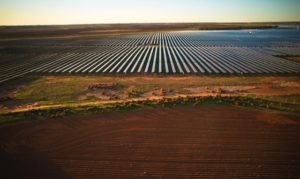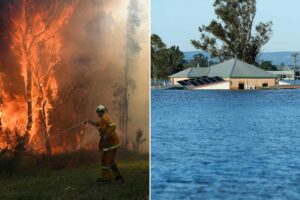West Australian Energy Minister Mike Nahan says he has instructed the state-owned utility Horizon Power to investigate renewables based micro-grids as a means of providing cheaper and more reliable power to regional areas.
Nahan – who as a former head of the Institute of Public Affairs has been a fierce critic of renewables, and as energy minister once intimated he did not want new large scale renewable investments in the state – says he has asked Horizon Power to “beef up” its capacity in building micro-grids.
Nahan says it was clear that having an elongated grid – with huge distances of poles and wires – or relying on diesel power was clearly too expensive and unreliable.
“If there is a place in the world where we can make the cost and nature of these isolated grids profitable and worthwhile, it is in Horizon’s area,” he told state parliament last week.
That is certainly true. WA has some of the world’s best solar resources, excellent wind resources (the 207MW Collgar wind farm runs at a capacity factor of around 50 per cent). And it has some of the highest electricity prices, despite the fact that the cost is massively subsidised by the government ($600 million a year), mostly to deliver electricity to regional areas.
Nahan’s comments were made in parliament in response to a complaint from Graham Jacobs, the member for Eyre, who had complained about the electricity supply to Ravensthorpe, a mining town that sits in the south west of the state at the end of a 300kM line.
In an attempt to address the problem of outages, the town went “off-grid” for a while, in 2009 but relied only on a diesel generator, and the fuel it used was so expensive – despite subsidies from a regional program – that the project ran out of money and the town was re-connected.
Jacobs noted that blackouts are still commonplace – three times a week for periods between 30 minutes and up to four hours. Mostly because the poles and wires that deliver the coal-fired energy is “exposed to nature”, subject to bushfires, lightning strikes and high winds..
“Significant power outages and brownouts have occurred, which is unacceptable, and have been unacceptably frequent during hotter weather,” Jacobs said.
On November 12, when there was a major outage, Western Power was unable even to crank up the diesel generator – now used as a back-up – because of the fire-hazard potential for it to throw a spark.
“I suppose there are a number of options. Perhaps we need to look at upgrading the line further. Perhaps we need to revert to diesel permanently, although that is very costly,” Jacobs said.
Or, he suggested, Ravensthorpe could adopt the model in the town of Hopetoun, 40 kilometres to the south, where there is a wind interface diesel generator.
Nahan said the alternative might be a combination of wind and solar, with some diesel for back-up.
“I am not a technologist. We could tell everybody in Ravensthorpe to put in solar and have a wind–diesel–solar combination. They already have a micro-grid. These are the things that Horizon is supposed to look at, and we will go down and discuss it.”
Nahan said Horizon had been asked to look at such solutions – not just in Ravensthorpe, but across WA, which has numerous areas of long isolated grids, and many off-grid areas that rely only on diesel. Networks in Queensland and South Australia are looking at similar options.
“I have entrusted it to build up the technology,” Nahan said. “It is working with Western Power, Synergy and some private sector people to look at alternatives, the technology and the mix and to try to address that.”
Nahan said it was also one of the reasons why he had appointed Ray Wills, the former head of the Western Australian Sustainable Energy Association, to join the board of Horizon Power.











